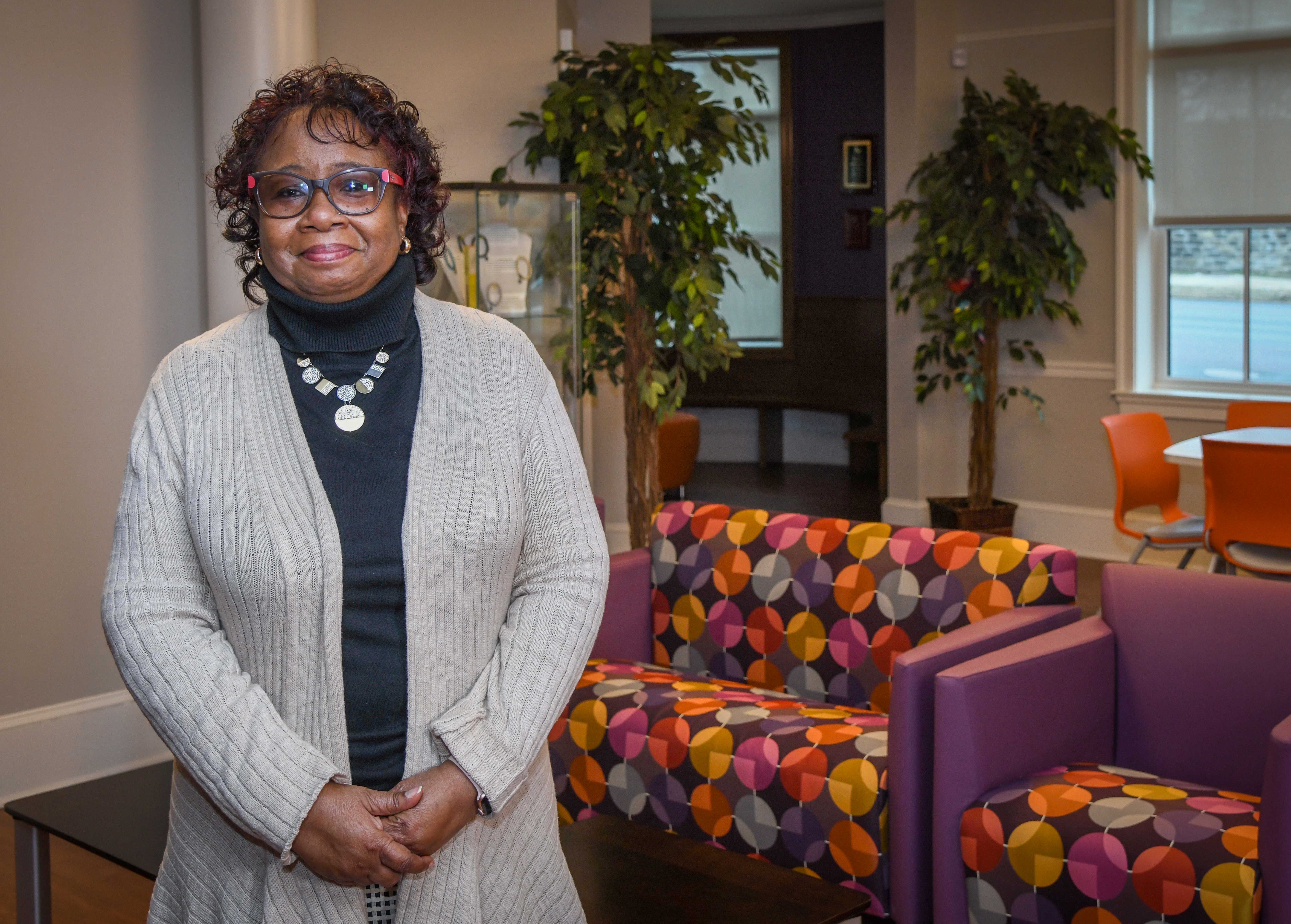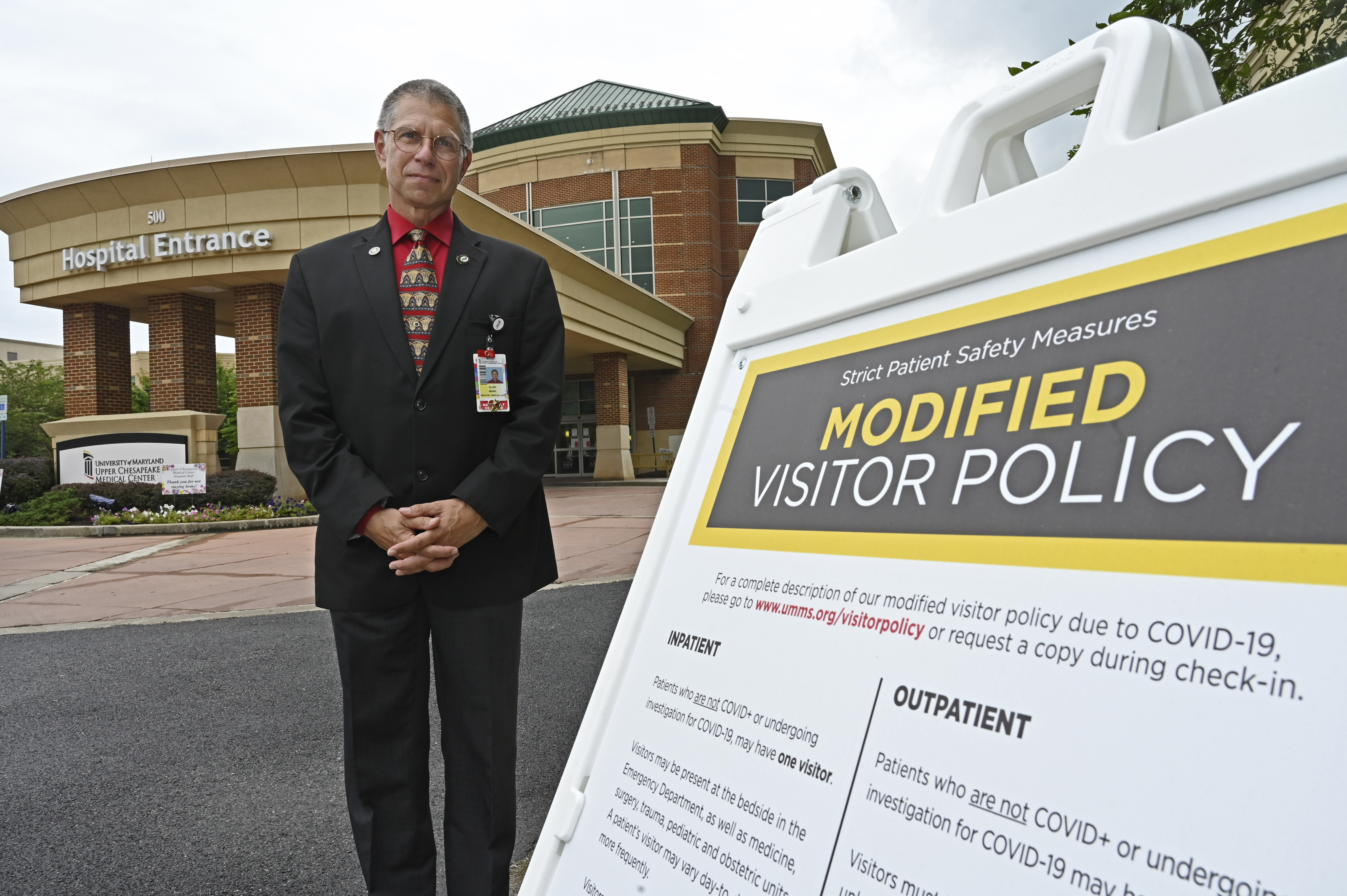In a single week, Maryland Gov. Larry Hogan lifted restrictions on restaurants, Baltimore Washington International Airport (BWI) had its busiest day in a year, and spring break revelers hurtled toward bars and beaches as the promise of “normalcy” beckoned after a year darkened by COVID-19.
Meanwhile, Lucy Hogan, no relation to the governor, buried her husband.
As improving health metrics and greater availability of vaccines have many anxious to resume their pre-pandemic lives, COVID nonetheless continues to claim victims — in the past month, more than 500 in Maryland. And more than 2,400 people per day died of COVID-19 in the U.S. during February 2021.
For their loved ones, the pandemic is present, not past.
“The fact that people are, ‘OK now we’re coming out of this and we’re moving on,’ and I’m not coming out of it and will never be over it — it’s just really hard at this moment,” said Lucy Hogan, 69, of Frederick, Maryland.
A retired professor at Wesley Theological Seminary in Washington, she and her husband, Kevin Hogan, both contracted COVID in December. While she eventually recovered, her husband, a dermatologist and former Navy doctor, was in and out of the hospital before he died March 1.
He was 70 years old. Having met in college, they had been married almost 48 years. Family and friends are a comfort, as are the stacks of letters and flowers that she’s received. Still, she watches less news these days, particularly when it’s about the loosening of restrictions.
“We have a long way to go,” she said.
Public and mental health experts would agree. Not only is it too soon to declare victory over the still-spreading and mutating coronavirus, they say, but there is also the emotional fallout of what is now a year of extraordinary sadness, separation and disruption, the effects of which will outlast the pandemic itself.

“The pain still exists even as we open up again,” said Veronica Land-Davis, executive director of Roberta’s House in Baltimore, a nonprofit that added a COVID survivors group to its bereavement programs last year. “People were dying, and people couldn’t be with their loved ones. People couldn’t gather.”
While some restrictions on gatherings are lifting, Jennifer Ray of Nottingham, Maryland, said she has not yet determined how to have what she knows will be a well-attended memorial for her husband Rob Ray, 52, a contractor, active member of the Jaycees and sports fan who was “loved by so many.”
“It’s still a pandemic, and my husband died of COVID. I’m not going to have a superspreader event,” said Ray, 44, a civil engineer and former national president of the Jaycees.
She and her husband both tested positive for COVID on Feb. 9 and initially she had the worse case, she said. A week later, she began feeling better but the condition of her husband, who had diabetes and other medical problems, worsened. He had to be rushed to the hospital, where he was placed on a ventilator.
Another week later, on Feb. 23, he died. It was only then that his wife was allowed to go to his bedside.
“They tried to give me gloves,” she said. “I said, ‘No, I’m touching my husband.'”
Now Ray watches as others get the vaccine that the couple had previously signed up for, and has heard that perhaps some ineligible people have found ways to get it. It may not have saved her husband, she said, but it adds to her feeling that they followed the rules, waited their turns and were left unprotected.
“Shame on us for being decent people,” she said.
Losing the fight
As a hospital chaplain, Allen Siegel thinks that by now he has “walked with” dozens of people as they’ve battled and ultimately lost their fight against COVID, and helped their families and the nursing staff deal with the loss.
But as for the country as a whole? Having been “in survival mode” for a year, it has yet to deal with the emotional toll of losing more than 536,000 Americans, a nearly unfathomable number, said Siegel, director of spiritual care services at the University of Maryland Upper Chesapeake Health system in Harford County.
Families, some of whom have lost more than one member, have been devastated, he said. Bereft survivors are left feeling everything from abandonment to anxiety to even guilt, particularly if they were the ones who inadvertently brought the virus home, Siegel said.
He and others who have counseled people through their loss say it has helped that President Joe Biden, unlike his predecessor, has memorialized COVID victims in highly public ways, starting with a lantern-lit ceremony at the Lincoln Memorial Reflecting Pool on the eve of his inauguration in January, and again in a March 11 speech marking the one-year anniversary of the official declaration of the pandemic.
That recognition is important for survivors, said Siegel, a former paramedic and nurse who became an ordained interfaith minister.

“It’s the sense of, ‘I’m not alone. I have permission to publicly acknowledge my loss,'” he said.
This becomes even more critical as the focus turns to resuming the old way of life, counselors say, something impossible for those who have lost a loved one to COVID.
“They’re stuck in their grief, and they see a world moving on,” said Julie Kays, the manager of the Counseling Center at Stella Maris, the long-term care facility in Timonium, Maryland. “For anyone who is grieving, it’s hard to feel like the world is moving on.”
At Roberta’s House, COVID’s effects are felt particularly keenly. It was started as an extension of the bereavement services offered by March Funeral Homes, among the largest African American-owned mortuary companies in the country.
With the pandemic taking an outsized toll on Black and other minority communities, COVID comes up not just at the weekly online support group for its survivors but at the other bereavement groups Roberta’s House offers, said Annette March-Grier, its president and co-founder.
From her vantage point, the crisis is far from over.
“I had one lady say, in June, ‘I went to the dollar store and bought 10 sympathy cards. Then I ran out of them and I bought 10 more. I ran out again and went a third time,'” March-Grier said.
“I can’t see that there’s any relief yet,” she said. “I tell people, the light is at the end of the tunnel, but this isn’t over yet.”
Loved ones died without them
At some still-to-be-determined point, the pandemic will recede enough that life will return to a more recognizable and familiar place. At Rebecca’s House, they hope to switch from videoconferencing back to in-person group meetings.
But the trauma of the pandemic will remain, many expect, particularly for those who had to stand on the other side of a hospital window, or even further, as their loved ones died without them.
“The bottom line is connection,” said the Rev. Harold A. Carter, Jr., senior pastor of New Shiloh Baptist Church in Baltimore.
“We’re social creatures, and when you can’t be there, that’s the sting.”
One of Carter’s parishioners, Larry Glover, lost two siblings to COVID, one in April and the other in August. Both lived in Florida, and because of the pandemic he was unable to travel to see them or attend their funerals, an experience he called “terrible.”
“I look at pictures, and I think about them,” said Glover, 69. “It’s something you have to deal with.”
Some anticipate the grieving process, delayed by the inability to gather for funerals, to continue — among those who lost family or friends, as well as those who lost pieces of their lives: the high school graduation, the big wedding celebration, the simple marking of passing from one life stage to another.
Some of that could and was replaced with online gatherings, which sometimes had the benefit of allowing those at a distance to participate more easily than they might otherwise have, said J. Shep Jeffreys, a Columbia-based psychologist who specializes in grief and loss.
But for others, the moment to be together passed. That’s not something that can be recovered, even after the pandemic fades, Jeffreys said.
“What it has done to our world,” he said, “I don’t think we’ll ever be the same.”





























